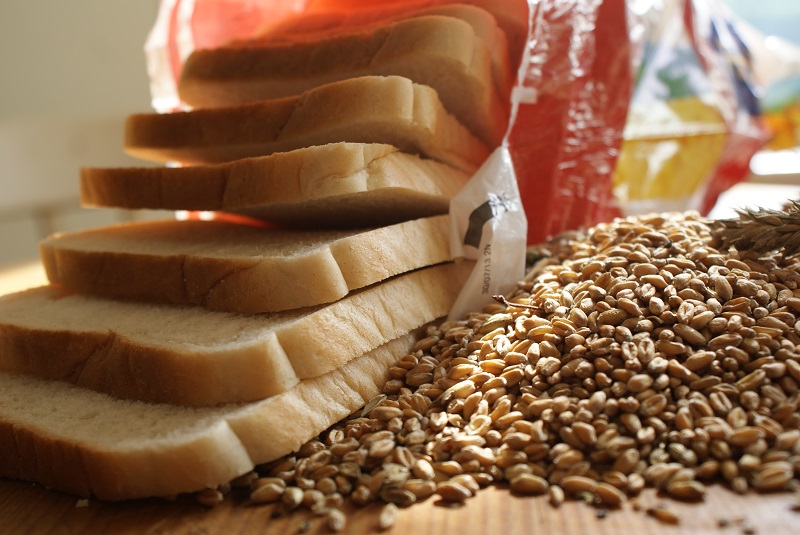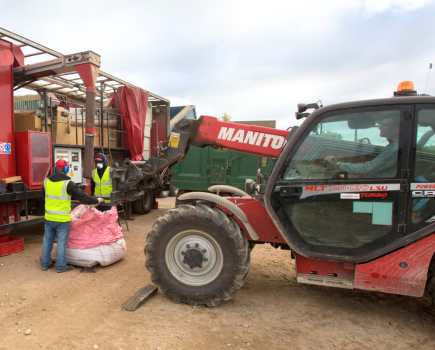Reports that bread prices will rise have been dismissed by industry experts, but the greater concern may be the potential impact on trade negotiations as the end of the Brexit transition period draws near. Tom Allen-Stevens reports
Fears are growing for the impact of the worst harvest farmers have gathered in 40 years.This year’s UK wheat harvest is estimated to fall to around 10M tonnes – around two-thirds of what growers brought in the barn last year, and well below domestic consumption of around 14.7M tonnes. The picture on oilseed rape may be grimmer still, with AHDB estimating national yields at 2.6-3.0t/ha. With a total crop harvested estimated at around 390,000ha, this will bring in around half the domestic rapeseed requirement.
The harvest horrors have prompted national news outlets, including the BBC, to report bread and flour prices are set to rise. But the price of wheat does not translate “directly and proportionately” to the price of bread, according to AHDB head of market specialists David Eudall.
“We estimate that the value of wheat in an 800g loaf of bread stands at only 11%,” he says. “With a small harvest and increased imports, our domestic milling wheat prices have been moved higher. However, the price of a loaf on the shelf will be far more influenced by the need for supermarkets to keep consistent prices for consumers amid the record-breaking recession we face (and possible deflation).”
David points out the price of bread has actually fallen from £1.44/kg to £1.40/kg since Jan. He highlights periods in recent years where volatility in wheat markets have pushed wheat prices up over £200/t. “But this hasn’t resulted in a proportionate rise in bread price.”
Political impact

Nick von Westenholz reckons a deal will be done, but it’s likely to come late in the day.
The political impact may be far greater, notes NFU director of EU exit and international trade Nick von Westenholz. “Arable farmers will be feeling sore and these reports will exacerbate anxiety over a no-deal Brexit,” he told CPM.
So if the UK – historically an exporter of wheat and oilseeds – is coming to the negotiating table with a begging bowl, how will that impact on trade talks with the EU, US and others? “On the face of it, it doesn’t look good. But no one negotiates a trade deal on just one year. These are long-term arrangements, and any greater market access is normally phased in over a number of years,” says Nick.
“But it does reiterate an important point on food security – does the Government want to drive domestic food production or ignore it and source more from the rest of the world? This harvest has brought into focus the volatility of production and the potential for massive disruption to food-related markets. At the same time, arable farmers are facing the phasing out of the Basic Payment Scheme (BPS). There are tough times ahead for the sector.”
He points out that the UK has already set a tariff-free quota for cane sugar and has decided to reduce the maize tariff to zero. Current high maize prices mean the automatic mechanism for setting the EU tariff also puts that effectively at zero, although the EU and UK price is set to diverge when the maize price falls back, exposing the UK feed grain market to cheap imports.
But Nick feels the big issue in trade negotiations is the relationship between the UK and EU, and fears the prospect of a no-deal Brexit may be greater than it was a year ago. “We have a very different UK political environment. A Government with a majority of 80 effectively takes Parliament out of the equation, so it’s in the Government’s gift to refuse a deal with the EU.
“However, after the disruption of the last year, with COVID-19 and now facing a recession, it seems unlikely there’d be an appetite for greater upheaval. Hopefully a deal will be done, but it’s likely to come late in the day,” notes Nick.
Harvest survey
The NFU is urging arable farmers to complete its 2020 harvest survey. “After a season of extremes, it seems more important than ever to get an early picture of what this year’s harvest has looked like across the country,” notes combinable crops chairman Matt Culley.
“The NFU’s annual harvest survey not only gives us early figures to illustrate the resilience of the sector to policy makers, but also offers a check point for official estimates.” www.nfuonline.com/harvest2020/




